MacKinnon steps into key post in minority Parliament
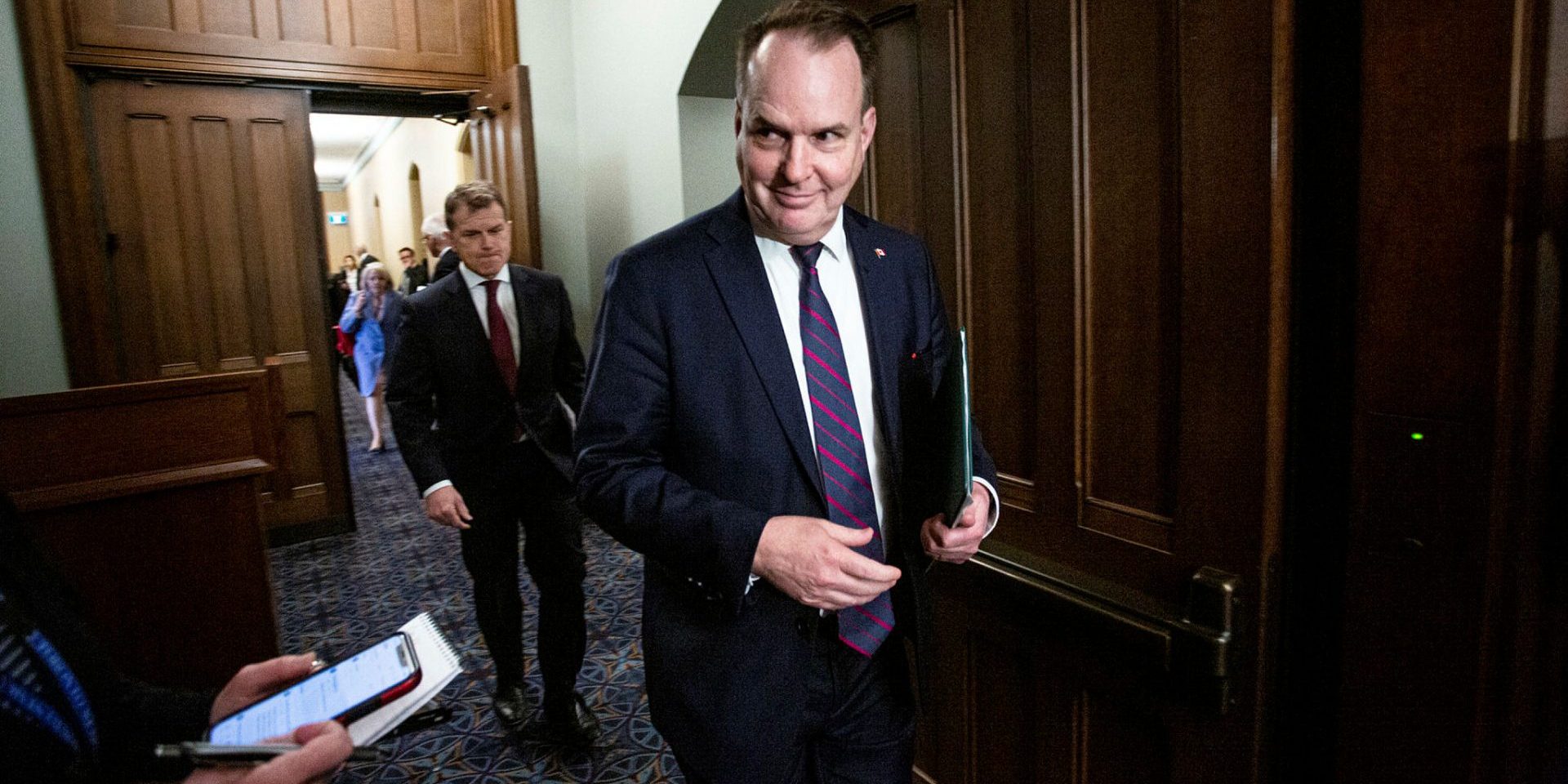
The government will have a steady hand in Government House Leader Steven MacKinnon who will be a key player in building cross-party relationships to get the government’s bills through the House in this minority Parliament, say former top federal and provincial Liberal politicians.
“It’s a job that takes experience, which he has, and it takes a fairly personable character and profile, which he has, and there’s no question that he is holding—probably in many ways—the future of the government in his hands,” said Lloyd Axworthy, who served in the cabinets of Liberal prime ministers Pierre Trudeau, John Turner and Jean Chrétien.
Axworthy said with the Liberal minority government, MacKinnon’s (Gatineau, Que.) major task will be to build relationships with New Democrat and Bloc Québécois MPs to get bills through the House. The Liberals hold 170 seats right now, two seats short of a majority. MacKinnon is also vice-chair of cabinet’s Planning and Priorities Committee, and Operations and Parliamentary Affairs Committee. He will be responsible for leading House leaders meetings, managing the legislative agenda, and will answer to the prime minister and cabinet on the management of House.
“While the Carney government is dedicated to its economic agenda, it has to keep in mind progressive-minded [parliamentarians] who want to see some legislation and action in areas, whether it’s climate or equality or international humanitarian law,” said Axworthy, who represented a Winnipeg riding in the Commons from 1979 to 2000, and supported Transport and Internal Trade Minister Chrystia Freeland (University—Rosedale, Ont.) in the recent federal Liberal leadership race.
“With MacKinnon, it’s going to be awfully important for management, not just with the other parties, but within the Liberal caucus itself,” he said.
“You’ve got a lot of newbies who’ve never been there before, and that makes it more difficult for the House leader. You have to maintain morale, and there will be a number of MPs who were in cabinet—or thought they should be—and aren’t in the cabinet,” said Axworthy, a former foreign affairs minister in the Chrétien government. “And Carney hasn’t had the experience, either, so having MacKinnon there is probably the right one to herd the cats.”
It’s the third tour of duty for the 58-year-old, Charlottetown-born MacKinnon as the government House leader.
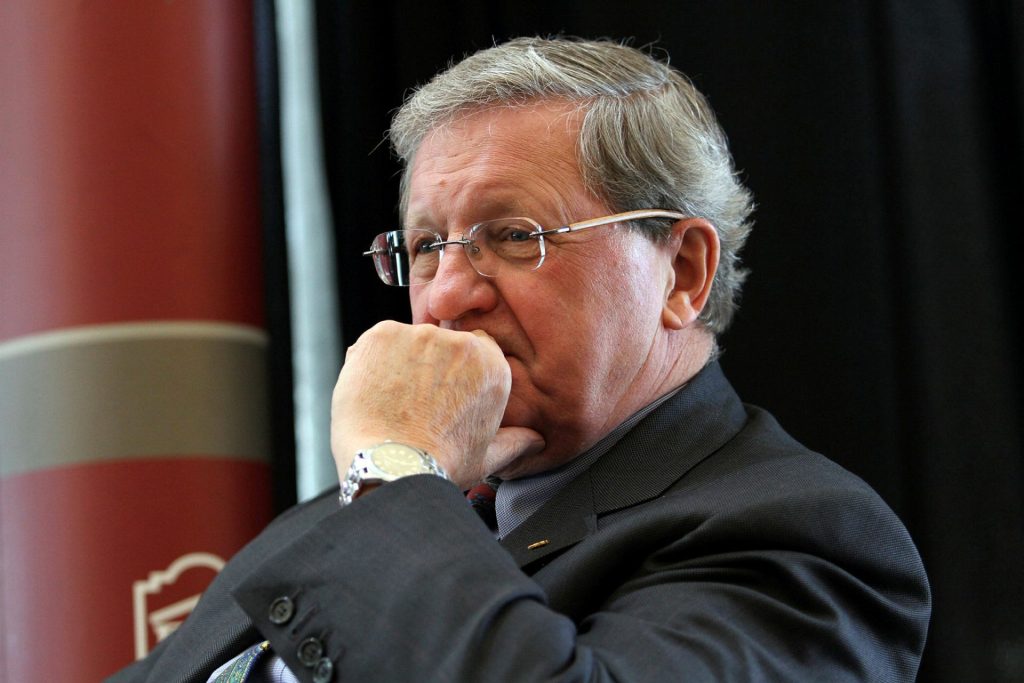
The Liberal MP for Gatineau since 2015 when Justin Trudeau first formed a majority government, MacKinnon was government House leader under the former prime minister from January to March this year when Karina Gould (Burlington, Ont.) left cabinet to run for the Liberal leadership.
Last year, he filled in for her again in the role when she was on maternity leave from January to July.
When newly elected Liberal leader Mark Carney (Nepean, Ont.) became prime minister in March, MacKinnon was named the minister of the newly created jobs and families portfolio, which Patty Hajdu (Thunder Bay—Superior North, Ont.) now holds as of last week.
MacKinnon was brought to the front bench following the 2021 federal election when the Liberals were re-elected to form their second consecutive minority government and Trudeau appointed him the chief government whip—a position he held until 2024.
Sworn in at the time as a privy councillor, which gave him access to cabinet documents, MacKinnon made it to minister last year when he was named to labour and seniors portfolio in July, and in December, moved to employment, workforce development and labour—a cabinet position that no longer exists.
The Hill Times received no reply to its request for an interview with MacKinnon.
Former Liberal MP Francis Drouin, who represented the Ontario riding of Glengarry-Prescott-Russell from 2015 until April of this year when he chose not to seek re-election, described his former colleague as “always being solid in the House” and that MacKinnon will be up to the task of both serving as a spokesperson for the government in the Commons and in “planning and planting the legislative strategy.”
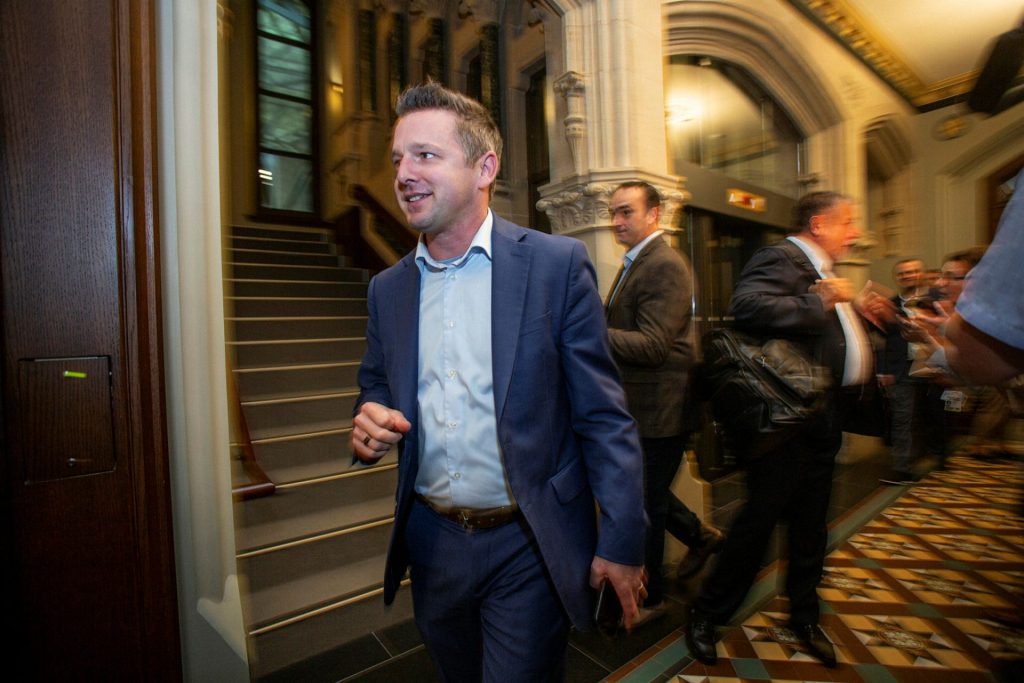
Drouin said MacKinnon has already formed relationships with parliamentarians across party lines, including—as a Quebec MP—with Bloc members.
“He did well in the labour portfolio and was a local spokesperson when Phoenix pay issues were happening, and I don’t need to explain to you how many constituents are federal employees in his riding of Gatineau—and he got re-elected because he’s a good constituency MP, but also competent enough to be a minister,” said Drouin, who served as parliamentary secretary to former agriculture and agri-food ministers Lawrence MacAulay and Marie-Claude Bibeau, neither of whom sought re-election this year.
Last December as labour minister, MacKinnon brought the postal strike to an end before Christmas after sending the dispute between Canada Post Corp. and the Canadian Union of Postal Workers (CUPW) to the Canadian Industrial Relations Board, which was directed to order CUPW workers back to work under their existing collective agreement until May 22.
In 2017, as parliamentary secretary to then-minister of public services and procurement Judy Foote, MacKinnon served on a working group composed of mainly ministers that Trudeau established to resolve issues surrounding the problematic Phoenix pay system.
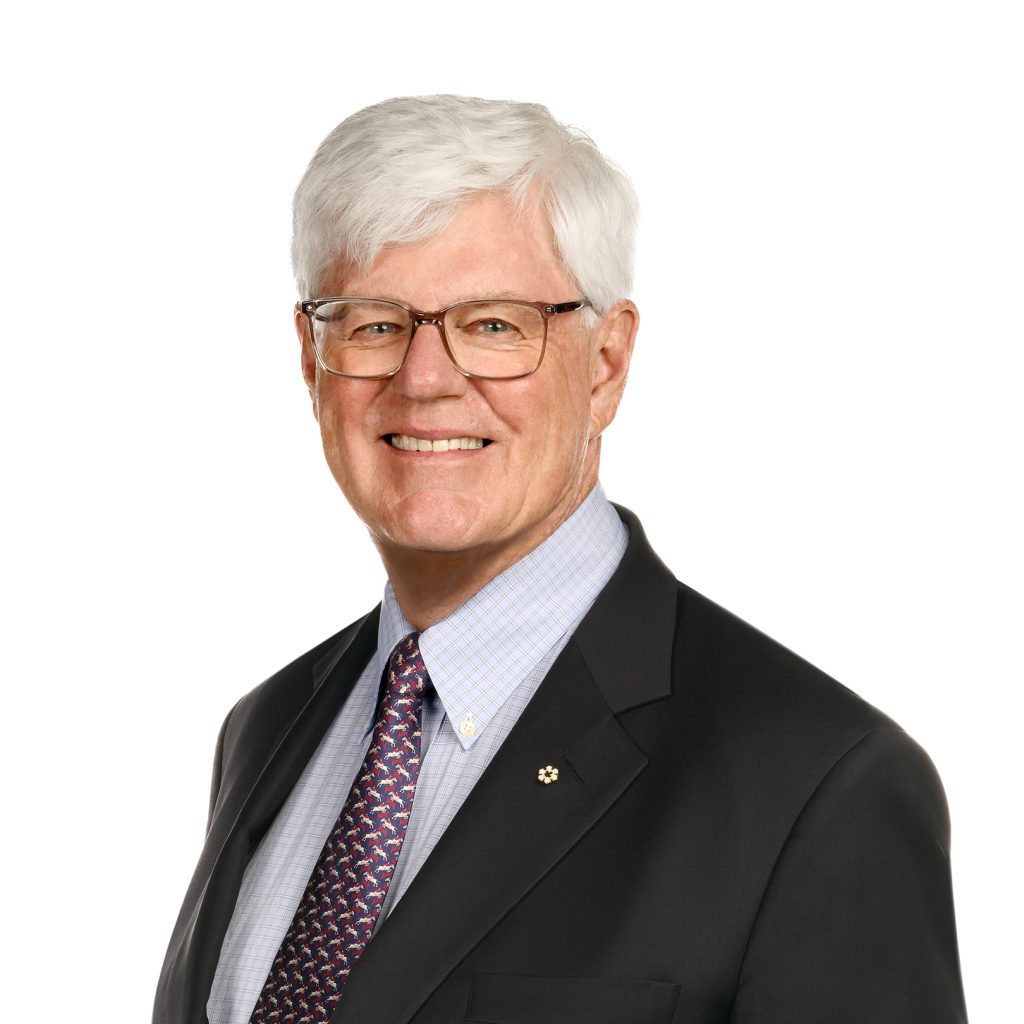
MacKinnon is “probably glad to not be dealing with a postal strike,” said John Manley, Canada’s eighth deputy prime minister and finance minister in the Chrétien government, about a possible mail disruption this month.
“I’m sure he enjoyed having his own department and House leader is a little different. But he’s still at the table and he’s a mature, sensible guy, and will probably keep his head down and do his work,” said the former Ottawa South MP, who was also served as foreign affairs minister and industry minister under Chrétien. “His job will be to keep the government’s agenda on track. Before prorogation [in January], nothing had been done for what, 10 months? The country can’t afford to have that to go on again.”
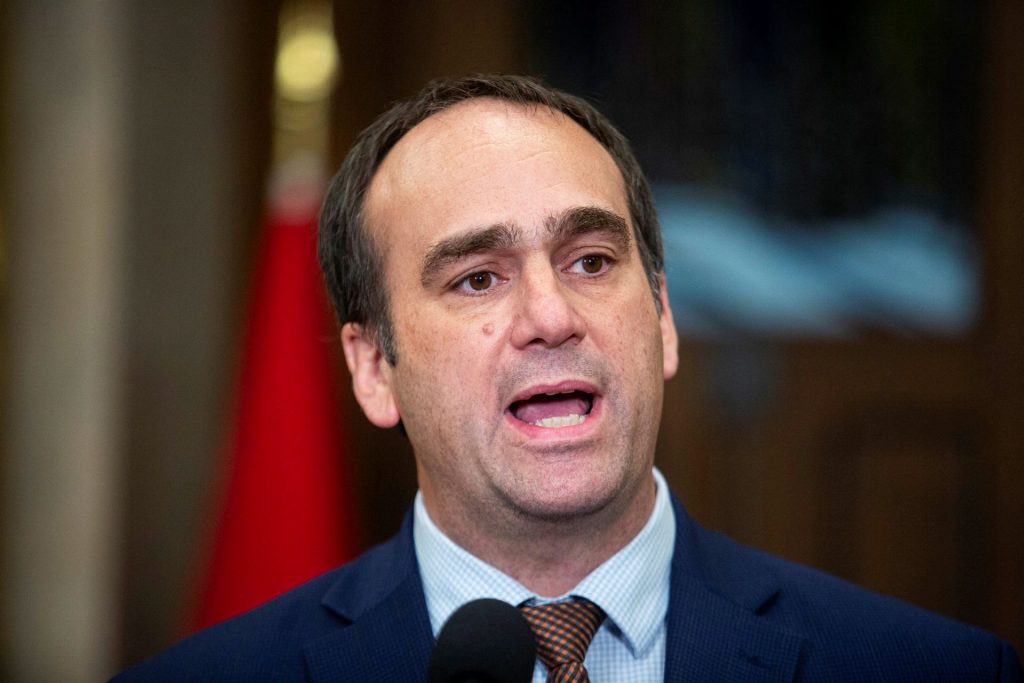
Under Carney’s cabinet structure, MacKinnon has been appointed the vice-chair of both the Priorities, Planning and Strategy Cabinet Committee—that the prime minister chairs— and the Operations and Parliamentary Affairs Cabinet Committee, chaired by Intergovernmental Affairs Minister Dominic LeBlanc (Beauséjour, N.B.).
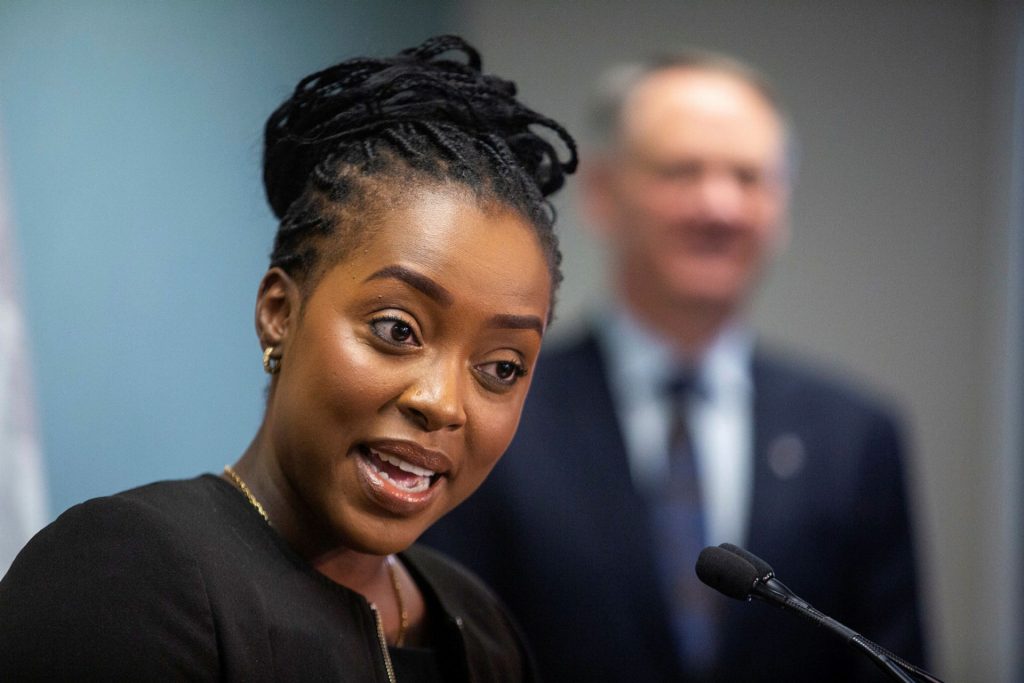
Drouin said that he doesn’t envision MacKinnon having to deal “in the short term with the shenanigans of the Conservatives to stall legislation” as they did last December to press the government to end elements of the carbon tax, including on home-heating sources. But the House leader will likely be laser-focused on a government agenda dominated by legislation related to the economy, said Drouin.
MacKinnon has long been involved with the federal Liberal Party. He was named the party’s deputy national director when Paul Martin became Liberal leader and Canada’s 21st prime minister in 2003, and became the Liberal Party’s national director following the 2004 election, which Martin won to form the first minority government since Joe Clark’s Progressive Conservatives in 1979.
But MacKinnon cut his teeth in politics in New Brunswick where he worked in the premier’s office when Frank McKenna led the provincial Liberal government from 1987—when his party held all 58 seats in the legislature— to 1997.
“He did everything,” said McKenna of MacKinnon whom he recruited when the future MP was studying business, in French, at the Université de Moncton. “He managed caucus relationships beautifully. He was a major interlocutor for us with the Acadian communities on language issues even though he started life as a unilingual Prince Edward Islander, he’s got an extraordinary mastery of, not just French, but of culture and history.”
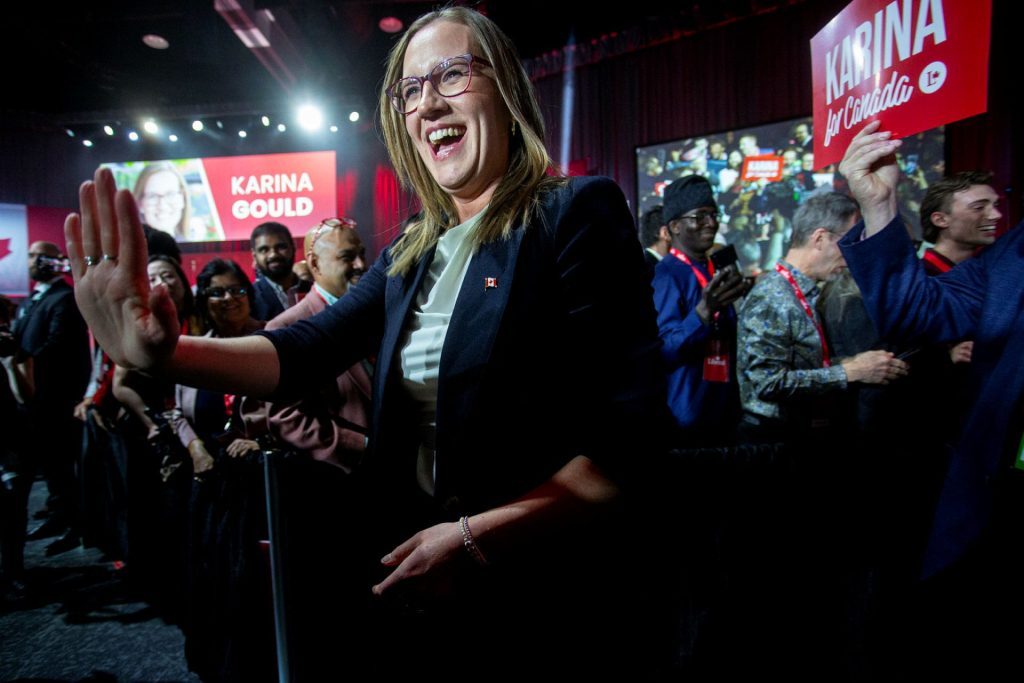
MacKinnon went on to serve as executive director of the New Brunswick Liberal Party before moving onto the federal Liberal scene—“and along the way did an MBA out of Queen’s. He’s a very accomplished guy,” offered the former premier and chairman of Brookfield Corp. Carney was the chair of Brookfield Asset Management.
“I thought he was doing a terrific job as minister of labour and then as jobs minister. Every file he touched he did so with a great deal of skill,” said McKenna.
The former premier said that in a minority Parliament with a prime minister driven by a “fast paced” and “aggressive agenda” as “the CEO of the country,” MacKinnon’s “skill set is well-suited for that, and he will be part of the inner cabinet, and I think the gravitas he brings will be on full display.”
“Steve brings the same advantage that Dominic LeBlanc brings. They’re both Maritimers—and Steve brings the warmth, charm and respect and camaraderie that we associate with people in Atlantic Canada, and that allows him to manage relationships across and within party lines,” said McKenna, a former Canadian ambassador to the United States and the current deputy chair of TD Securities.
“He’s an extraordinary asset for the government—he’s a skilled communicator, a very loyal soldier and competent, and the prime minister couldn’t have a better person for an agenda focused on the economy.”
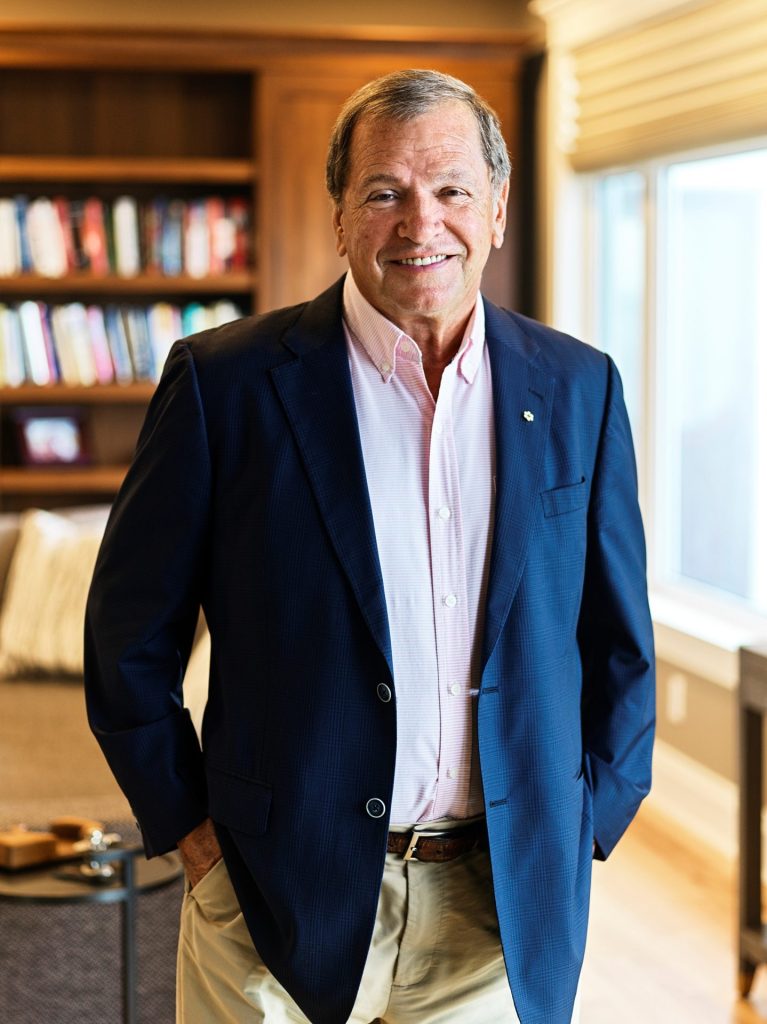
Political scientist Lori Williams, an associate professor in the department of economics, justice and policy studies at Mount Royal University in Calgary, expects MacKinnon to receive “some willing support amongst the moderate, progressive Conservatives.”
“I think there’s potential for a crack in the armour” within the Tory caucus of MPs who may have reservations about their party’s leadership under Pierre Poilievre, who lost his seat for the Ontario riding of Carleton to Liberal Bruce Fanjoy in the election, said Williams, who said Poilievre’s absence in the House will change the dynamics.
“I do think that there’s quite a bit of potential, for at least this first sitting, starting to move in a more positive direction—and maybe seeing that will inspire or push Poilievre to try different approaches,” she said.
Joining MacKinnon in government House management duties will be the more hyper-partisan Liberal MP Mark Gerretsen (Kingston and the Islands, Ont.), whom Carney appointed as the chief government whip last Wednesday, replacing Rechie Valdez (Mississauga—Streetsville, Ont.) who held the position at the cabinet level and who was named minister of women and gender equality last week.
“Mark understands the importance of votes,” said Drouin.
He said that while the Liberals could govern with “a virtual majority,” they remain in a minority situation in the House, “so the whip’s job will be even more important to ensure that they have the right numbers so legislation can pass.”
First elected to the House in 2015, Gerretsen—the 49-year-old, former mayor of his hometown of Kingston—served as deputy government House leader since 2013. Prior to that, he was parliamentary secretary to former government House leader Mark Holland, who did not seek re-election this year.
Bloc MP Christine Normandin (Saint-Jean, Que.), who serves as her party’s House leader, welcomed the appointments of MacKinnon and Gerretsen to both of their parliamentary roles—and offered praise for both.
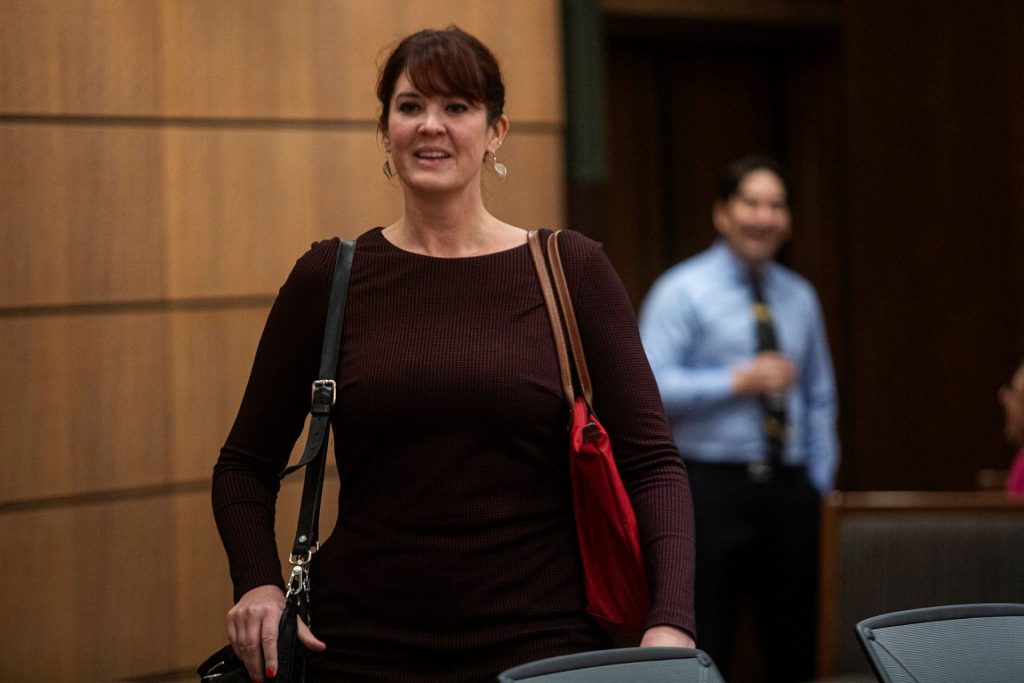
She said that when MacKinnon “says something, he sticks to his word and he’s pretty straightforward, so as long as we keep it on the merits of what we discuss, I think everything is going to go well.”
“Our door is always open,” said Normandin, who previously served as the Bloc’s deputy House leader and was first elected to the Commons in 2019. “If he wants to come to us, we’re always ready to have a discussion.”
Although she won’t be working directly with Gerretsen, Normandin said she worked closely with him as their respective ridings are home to complementary Royal Military Colleges.
“He was doing a great job on that, and we had a very good relationship,” she said.
The Hill Times reached out to the new chief government whip, but did not hear back.
“When it comes to the Bloc Québécois, there will be some kind of truce maybe, as long as the government doesn’t try to interfere with Quebec’s interests regarding secularism, identity, language,” said Normandin, adding that there’s no public appetite for a federal election triggered by a non-confidence motion. “There will be no reason for us to be aggressive or to close the door on discussions.”
She said the Liberals will function “as a majority government, but only one vote at a time.”
“Nobody has a knife in their teeth, and federal parties will be working towards the best interests of Canada with regards to the discussions surrounding CUSMA [Canada-United States-Mexico Agreement] and we’ll make sure that Quebec is not forgotten by both parties and by the negotiators,” said Normandin.
“That sets the table for congenial, collaborative and constructive discussions.”
Prime Minister Carney’s Cabinet Committees
Priorities, Planning and Strategy
Sets forward-looking strategic direction, prioritizes government activity, and tracks implementation.
Members:
- Prime Minister Mark Carney (Chair)
- Government House Leader Steven MacKinnon (Vice-Chair)
- Canada-U.S. Trade and Intergovernmental Minister Dominic LeBlanc
- Treasury Board President Shafqat Ali
- Industry Minister Mélanie Joly
- Finance Minister François-Philippe Champagne
- Energy and Natural Minister Tim Hodgson
- Foreign Affairs Minister Anita Anand
- Defence Minister David J. McGuinty
- Justice Minister Sean Fraser
- Canadian Identity and Culture Minister Steven Guilbeault
- Housing Minister Gregor Robertson
Operations and Parliamentary Affairs
Manages hot and emerging issues, intergovernmental affairs, as well as Parliamentary business.
Members:
- Canada-U.S. Trade and Intergovernmental Minister Dominic LeBlanc (Chair)
- Government House Leader Steven MacKinnon (Vice-Chair)
- Public Safety Minister Gary Anandasangaree
- Jobs and Families Minister Patty Hajdu
- Government Transformation, Public Works, and Procurement Minister Joël Lightbound
- Artificial Intelligence and Digital Innovation Minister Evan Solomon
- Canadian Identity and Culture Minister Steven Guilbeault
- Health Minister Marjorie Michel
- Women and Gender Equality Minister Rechie Valdez
Treasury Board
Oversees the effective management of public funds, the public service, and cross-government policies that enable increased effectiveness and productivity as well as ongoing improvements to client-centred program delivery. This includes accelerating the digitization and the use of artificial intelligence across government.
Members:
- Treasury Board President Shafqat Ali (Chair)
- Finance Minister François-Philippe Champagne (Vice-Chair)
- Environment Minister Julie Dabrusin
- Government Transformation, Public Works, and Procurement Minister Joël Lightbound
- International Trade Minister Maninder Sidhu
- Health Minister Marjorie Michel
Alternates:
- Energy and Natural Resources Minister Tim Hodgson
- Housing Minister Gregor Robertson
- Transport and Internal Trade Minister Chrystia Freeland
- Jobs and Families Minister Patty Hajdu
- Fisheries Minister Joanne Thompson
- Northern and Arctic Affairs Minister Rebecca Chartrand
- Crown-Indigenous Services Minister Rebecca Alty
- Veterans Affairs Minister Jill McKnight
National Security Council
Serves as a forum for the assessment and advancement of Canada’s strategic national interest in a rapidly evolving world, including through the rigorous analysis of intelligence.
Members:
- Prime Minister Mark Carney (Chair)
- Foreign Affairs Minister Anita Anand (Vice-Chair)
- Canada-U.S. and Intergovernmental Affairs Minister Dominic LeBlanc
- Finance Minister François-Philippe Champagne
- Industry Minister Mélanie Joly
- Defence Minister David McGuinty
- Justice Minister Sean Fraser
- Energy and Natural Resources Minister Tim Hodgson
- Public Safety Minister Gary Anandasangaree
- Government House Leader Steven MacKinnon
- Immigration Minister Lena Metlege Diab
- Transport and Internal Trade Minister Chrystia Freeland
- Emergency Management Minister Eleanor Olszewski
Build Canada
Considers issues relating to building a strong economy that positions Canada to be competitive and productive—and that enables Canadians to succeed. This includes considering issues around housing, infrastructure investments, climate action, Indigenous economic prosperity, and other measures to increase Canada’s economic resiliency.
Members:
- Energy and Natural Resources Minister Tim Hodgson (Chair)
- Transport and Internal Trade Minister Chrystia Freeland (Vice-Chair)
- Jobs and Families Minister Patty Hajdu
- Environment Minister Julie Dabrusin
- Fisheries Minister Joanne Thompson
- Housing Minister Gregor Robertson
- Northern and Arctic Affairs Minister Rebecca Chartrand
- Crown-Indigenous Services Minister Rebecca Alty
- Industry Minister Mélanie Joly
- International Trade Minister Maninder Sidhu
- Canada-U.S. Trade and Intergovernmental Minister Dominic LeBlanc
- Agriculture Minister Heath MacDonald
- Artificial Intelligence and Digital Innovation Minister Evan Solomon
Government Transformation / Government Efficiency
Co-ordinates efforts to realize more effective and efficient government services and processes and to improve service delivery for Canadians. Co-ordinates efforts to reduce government expenditures.
Members:
- Finance Minister François-Philippe Champagne (Chair)
- Government Transformation, Public Works, and Procurement Minister Joël Lightbound (Vice-Chair)
- Agriculture Minister Heath MacDonald
- Treasury Board President Shafqat Ali
- Indigenous Services Minister Mandy Gull-Masty
- Immigration Minister Lena Metlege Diab
- Government House Leader Steven MacKinnon
- Artificial Intelligence and Digital Innovation Minister Evan Solomon
- Energy and Natural Resources Minister Tim Hodgson
- Housing Minister Gregor Robertson
Secure and Sovereign Canada
Considers ways to reinforce Canadian sovereignty, productively manage Canada-U.S. relations, and advance Canada’s interests around the world.
Members:
- Defence Minister David J. McGuinty (Chair)
- Foreign Affairs Minister Anita Anand (Vice-Chair)
- Industry Minister Mélanie Joly
- Veterans Affairs Minister Jill McKnight
- Canada-U.S. Trade and Intergovernmental Minister Dominic LeBlanc
- Immigration Minister Lena Metlege Diab
- International Trade Minister Maninder Sidhu
- Public Safety Minister Gary Anandasangaree
- Emergency Management Minister Eleanor Olszewski
- Northern and Arctic Affairs Minister Rebecca Chartrand
Quality of Life and Well-Being
Considers ways to improve community safety and health, advance reconciliation with Indigenous Peoples, and augment the overall quality of life and well-being of Canadians.
Members:
- Steven Guilbeault (Chair)
- Environment Minister Julie Dabrusin (Vice-Chair)
- Veterans Affairs Minister Jill McKnight
- Health Minister Marjorie Michel
- Emergency Management Minister Eleanor Olszewski
- Crown-Indigenous Services Minister Rebecca Alty
- Indigenous Services Minister Mandy Gull-Masty
- Jobs and Families Minister Patty Hajdu
- Women and Gender Equality Minister Rechie Valdez
- Justice Minister Sean Fraser
- Agriculture Minister Heath MacDonald
- Fisheries Minister Joanne Thompson
Incident Response Group
Activated as needed for crisis management, co-ordination, and rapid decision-making in response to national crises or threats to Canada.
Members:
The Incident Response Group is a working group of ministers. Membership of the group may consist of relevant ministers and senior government leadership, as needed, based on the nature of the incident. It would be expected that the prime minister would chair and that the minister of Emergency Management and Community Resilience would be a core member. SOURCE: Prime Minister of Canada
The Hill Times





 LICENSING
LICENSING PODCAST
PODCAST ALERTS
ALERTS













